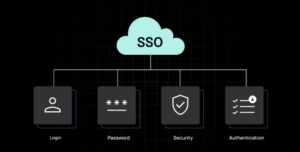
A business data analyst is a modern-day detective—turning numbers into narratives and data into decisions. In today’s data-driven landscape, companies are overwhelmed with raw information. But without skilled professionals who can interpret that data and derive meaningful insights, even the most innovative organizations risk falling behind. The role of a business data analyst has never been more crucial.
From improving customer experiences to streamlining operations and forecasting trends, business data analysts sit at the core of intelligent strategy development. If you’re curious about the responsibilities, required skills, career prospects, and how this role shapes modern business—read on for an in-depth breakdown.
What Does a Business Data Analyst Do?
At the heart of the business data analyst role is a unique ability to transform complex datasets into clear, actionable insights. These professionals collect, clean, and interpret data to help stakeholders make informed decisions. Whether it’s identifying patterns in customer behavior, optimizing supply chains, or supporting financial planning, analysts are the bridge between raw information and strategic thinking.
Business data analysts also play a vital role in helping companies achieve operational efficiency. Through advanced statistical analysis and visualization tools like Tableau, Power BI, or Python-based libraries, they identify key performance indicators (KPIs), detect anomalies, and provide recommendations. Their findings can lead to process improvements, cost reductions, and revenue increases, making them invaluable to virtually every industry.
Key Skills Required to Succeed as a Business Data Analyst
To thrive as a business data analyst, one must possess a versatile skill set that blends technical expertise with critical thinking. Proficiency in data manipulation tools such as Excel, SQL, and Python is essential. Familiarity with data visualization platforms and statistical analysis techniques helps analysts present their findings clearly and effectively to non-technical stakeholders.
However, technical prowess alone isn’t enough. Communication, problem-solving, and business acumen are equally important. Analysts must not only understand data but also relate their discoveries to real-world business objectives. The ability to ask the right questions, interpret business needs, and translate insights into action separates good analysts from great ones.
Career Path and Opportunities in Business Data Analysis
The career path for a business data analyst is dynamic and filled with growth opportunities. Entry-level positions often involve supporting senior analysts with data preparation and reporting tasks. With experience, analysts can transition into more strategic roles such as data scientists, business intelligence analysts, or analytics consultants. Some eventually move into leadership positions like Chief Data Officer (CDO) or Head of Analytics.
Industries like finance, healthcare, retail, technology, and logistics actively seek skilled analysts. As data becomes central to decision-making, the demand for business data analysts is expected to rise sharply. According to the U.S. Bureau of Labor Statistics, jobs in the analytics field are projected to grow much faster than average over the next decade, making this a stable and lucrative career choice.
Tools and Technologies Used by Business Data Analysts
A proficient business data analyst relies on a combination of tools and technologies to perform their role effectively. For data querying and manipulation, SQL remains the gold standard, while programming languages like Python and R are favored for deeper statistical analysis and automation. These tools help in sorting through large volumes of structured and unstructured data efficiently.
Data visualization tools such as Power BI, Tableau, and Looker are crucial in presenting data-driven stories. Cloud-based platforms like Google BigQuery, AWS, and Azure also play a big role, especially in organizations managing large-scale data. The ability to choose the right tool for the task not only speeds up workflows but ensures that insights are delivered accurately and promptly.
How to Become a Business Data Analyst
The journey to becoming a business data analyst typically begins with a bachelor’s degree in fields like business, statistics, computer science, or economics. However, the rise of online bootcamps, certifications, and self-paced courses means that passionate learners from non-traditional backgrounds can also break into the field. Certifications from platforms like Coursera, edX, and LinkedIn Learning can significantly boost one’s employability.
Gaining hands-on experience is key. Internships, freelance projects, or personal data analysis portfolios help candidates demonstrate their ability to work with real-world data. Networking through platforms like LinkedIn or attending industry events can also provide valuable connections and job leads. Continuous learning is vital—technology and data trends evolve rapidly, and staying current gives analysts a competitive edge.
Conclusion
In today’s hyper-competitive marketplace, businesses that harness the power of data will lead the charge—and business data analysts are the architects of that transformation. By combining technical skills, strategic thinking, and effective communication, these professionals turn data into powerful business tools.
Whether you’re a student, a career changer, or an entrepreneur, exploring a path in business data analysis can be both fulfilling and future-proof. As data continues to fuel innovation, the need for sharp analytical minds will only grow. If you’re ready to make an impact with data, there’s no better time to become a business data analyst.
Frequently Asked Questions (FAQs)
1. What is a business data analyst?
A business data analyst collects, processes, and analyzes data to help businesses make strategic decisions and improve overall performance.
2. What are the top tools used by business data analysts?
Common tools include SQL, Excel, Python, Tableau, Power BI, R, and cloud services like AWS or Google BigQuery.
3. Is a degree required to become a business data analyst?
While a degree in business, statistics, or computer science is beneficial, certifications and self-learning can also open doors.
4. What industries hire business data analysts?
Industries such as finance, healthcare, e-commerce, logistics, and tech actively hire data analysts.
5. How much does a business data analyst earn?
Salaries vary by region and experience, but in the U.S., the average salary ranges from $60,000 to $90,000 annually, with senior roles earning even more.
6. What’s the difference between a business analyst and a business data analyst?
While both roles involve decision-making support, business analysts focus on processes and systems, while data analysts concentrate on interpreting data.
7. Do business data analysts need to know coding?
Basic coding knowledge, particularly in SQL and Python, is often required, though the depth varies by role.
8. Can I become a business data analyst with no experience?
Yes, starting with internships, certifications, and personal projects can help you gain relevant experience.
9. What is the job outlook for business data analysts?
The demand is high and expected to grow, with businesses relying more on data to drive decision-making.
10. What soft skills are important for business data analysts?
Critical thinking, communication, problem-solving, and storytelling are essential to translate data insights into business strategies.







